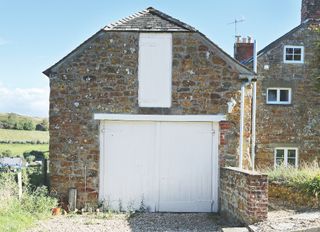How much does a garage conversion cost? 7 things you need to consider
Discover the 7 important factors that will impact your garage conversion budget with our expert guide by quantity surveyor Tim Phillips

How much does a garage conversion cost? There are 7 main factors that will influence the cost to convert your garage, and paying close attention to each of these will help you to budget accordingly.
Agarage conversionis a brilliant way to make the most of an underutilised space and can add value to your home. They also tend to be much cheaper than building the same sized extension for the same purpose.
Keep reading to discover what factors you should budget into your project to get the most out of your garage conversion.
How much does a garage conversion cost?
Garage conversions costswill vary depending on a number of factors but these are the 7 main elements to consider when planning your project:
1. Size and economies of scale
Generally speaking, the smaller the garage the lower the cost per m2. Subject to the intended purpose - which we’ll consider below - a small garage conversion will use less materials and labour.
However, economies of scale can be achieved when converting a large double garage. While the overall cost may be higher, a reduction can be achieved in the cost per m2, giving better value for money.
It's important to remember that you don't have to convert your entire garage. If you want to maintain a storage element, you can partition off a section and convert the remainder. Storage space is valuable in a home so if you can retain what you need and still add a room, you can minimise your costs and achieve two usable spaces.
2.你的位置
If you happen to live in or around London, your location can impact labour costs by around 25%. It's good to keep this in mind as you start dreaming about brilliantgarage conversion ideas.
3. The condition of the existing garage
If your existing garage is in a poor state of repair, you may incur additional costs if the contractors have to remedy any issues with the structure. If the works required are extensive then you should get accurate costings from an experienced quantity surveyor. In this scenario, it may be just as cost effective and less hassle to replace your garage with a new extension.

4. The extent of work required
An integrated garage will generally be cheaper to convert than others, as it is already connected to the home, whereas an attached garage will require the connection to be made. Each project will have its own design variations and even an integrated garage with an existing access may need to be converted with a much larger opening if you’re planning to expand an adjacent room. Creating a wide opening in a load-bearing wall will be more expensive than simply adding a door.
5. The function of the new room
The average costs of a garage conversion will largely depend on the purpose of your new space. Depending on its function - home office, bedroom or additional living room - you’ll need to factor in the basic requirements of lighting, electric points and heating.
However, if you’re seeking to add a utility or bathroom, the cost will go up. You’ll need to take account of the water supply, plumbing and drainage requirements, not to mention the cost of appliances and bathroom suites.
6. Design and quality
Your choice of specification and finish can add thousands to the budget. Flooring choices can range from £25/m2 to over £100/m2. There is a huge cost difference between opting for standard uPVC patio doors and the latest ultra-thin aluminium bifold doors. High-end appliances can add around £2,000 to a small utility, before you even start to consider the vast range of cost options for kitchens and bathrooms.
7. Ancillary storage needs
Once you have completed your conversion you'll need to find space for everything your garage previously housed. Things like gardening tools, bikes and old furniture will need a new home, so you may need to factor in the cost of a secure shed to store those items, if you don’t already have one.
Get the Homebuilding & Renovating Newsletter
Bring your dream home to life with expert advice, how-to guides and design inspiration, direct to your inbox.
Tim Phillips is an experienced senior quantity surveyor and estimator and has worked in the construction industry for over 35 years. He has worked on many varied projects in this time, for corporates, public bodies and private residential clients, managing multi-million budgets.
For the past 13 years, Tim has worked on a freelance basis, whilst managing his rental property portfolio. He has extensive experience of undertaking his own full-scale house renovations. He is also a speaker and expert at the Homebuilding & Renovating Shows.
- Gabriella DysonAssistant Editor
Most Popular
Bring your dream home to life with expert advice, how-to guides and design inspiration, direct to your inbox.
Thank you for signing up to Homebuilding. You will receive a verification email shortly.
There was a problem. Please refresh the page and try again.
